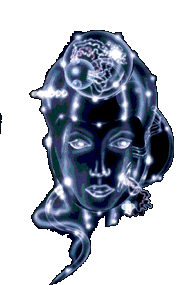Website Sections
- Home Page
- Library of Eugenics
- Genetic Revolution News
- Science
- Philosophy
- Politics
- Nationalism
- Cosmic Heaven
- Eugenics
- Transhuman News Blog
- Future Art Gallery
- NeoEugenics
- Contact Us
- About the Website
- Site Map
News Categories
- Artificial Intelligence
- Astronomy
- Cyborg
- Eugenics
- Freedom
- Futurism
- Futurist
- Liberty
- Nanotechnology
- NASA
- Spirituality
- Transhuman
- Mesothelioma
Partners


Altruism
Darwin pointed out that natural selection favors behavioral
patterns which promote survivability. Suicidal behavior, it
would seem, should lead to the destruction of the animal involved,
thus preventing it from reproducing. How then, sociobiologists
asked, could the behavior of a honeybee be explained
when, in stinging a perceived threat to the hive, it
rips out its own belly together with the stinger and thus perishes?
The answer is that survivability of the genotype, not of
the individual, is crucial. Although the individual bee dies,
the other members of the hive are genetically identical copies,
and the chances for the survival of their genes are improved
by the sacrifice of the individual.
Up until recently, survival of a human individual was
problematic. People are physically unimpressive animals,
with easily torn skin, no claws, weak musculature, and atrophied
canines. In primitive times opportunistic out-of-clan
cannibalism would have improved survival chances. Thus,
such individuals or groups would have been viewed not
merely as enemies but as potential food. We are the products
of precisely such an evolutionary process.
In all animal species, out-of-family altruism is the rare
exception. Survival requires maximum expenditure of effort,
and efforts expended on alien genes (dispersed or nonfocused
altruism) waste effort and thus, by definition, reduce survivability.
Most traits are arranged along a continuum, and altruism
is no exception. If a statistical curve were drawn to display
diffuse altruism at one end and focused altruism at the
other, the result would be radically skewed toward focused
altruism – that is, toward immediate offspring.
As man moved into larger groups (tribes), specialization
and cooperation went hand in hand. The skew was retained
but became less pronounced, and people learned to “live by
the rules” and even to feign nonfocused altruism. But the
genes really didn’t really change all that much. Homo
sapiens’s political history presents an unbroken string of violence,
and any objective determination of his coordinates
within the animal kingdom places him among the predators.
What sort of a society do we want? To the degree that altruism
is determined by our genes, artificial selection could
theoretically make it possible to create a social profile skewed
toward diffuse altruism. The difficulty of working toward a
better society is that such a process necessarily entails effort
and even sacrifice on the part of the currently living, who
have the power of absolute dictators.
All this leads to gloomy conclusions. Professor of human
ecology Garrett Hardin wrote that it is futile to expect people
to act against their own self-interest,55 and the bioethicist
Peter Singer defines “reciprocal altruism” as merely a “technical
term for cooperation.
The big question, of course, is how to select for altruism.
The same questions must be answered here as for other
traits. How to measure? What are the relative contributions
of nature and nurture? Which genes come into play and in
which combinations? What is the heritability? What combinations
of positive and negative eugenic approaches are likely to
prove most effective?
A good Trekkie, the eugenicist wishes to create a global
civilization which does not set consumption as its primary
goal but longs for a loving, nonpredatory society that pursues
the goal of intellectual enrichment, a society that will achieve
a material standard of living as a byproduct of this mentality.
Culture and science are seen as goals in and of themselves,
not just means to a material end. A high material standard of
living is viewed as coming from knowledge and love, not the
reverse.
No philosophy of life can logically justify its basic premises.
These are givens, the values of the individual or the
group. The society that acclaims maximized material consumption
as its ultimate goal, that expresses only passing
concern for the fate of future generations, that places no
value in culture and science other than that which derives
from their contribution to consumption, proceeds from a point
of reference that cannot be logically overthrown. Such a
worldview is the product of an evolutionary process of selection
which rewarded clan-specific altruism.
By contrast the eugenics movement advocates a universalism
that encompasses all humanity while recognizing the
continuity of our species with all other species on this planet,
disavowing any exclusively homocentric orientation that
would view our fellow creatures as mere fodder for our usage.
Eugenicists also perceive a need to be open to genetic manipulation,
machine enhancement, and even contact with beings
from other planets.
The operative phrase of this ethical system is “the
greater good,” which is understood more in the spirit of John
Stuart Mill (1806-1873) than in the hedonistic
pronouncements of a Jeremy Bentham (1748-1832). The
philosophy extends beyond the creature universe to thought
itself.
Eugenicists argue that there is much in our genes which
may have been advantageous to previous generations and
species, but conditions have now changed radically. They
maintain that we can either work with nature and achieve
utopia, or we can in our greed reject reform and perish. Dangerous?
Unquestionably. It is entirely possible, for example,
to create people with limited intelligence to perform our
manual labor for us, just as we currently import such persons
through our national immigration policy. Given our current,
still limited understanding, we can easily overestimate our
power to predict. And there is the danger of being overly narrow
in separating the desirable from the undesirable.








